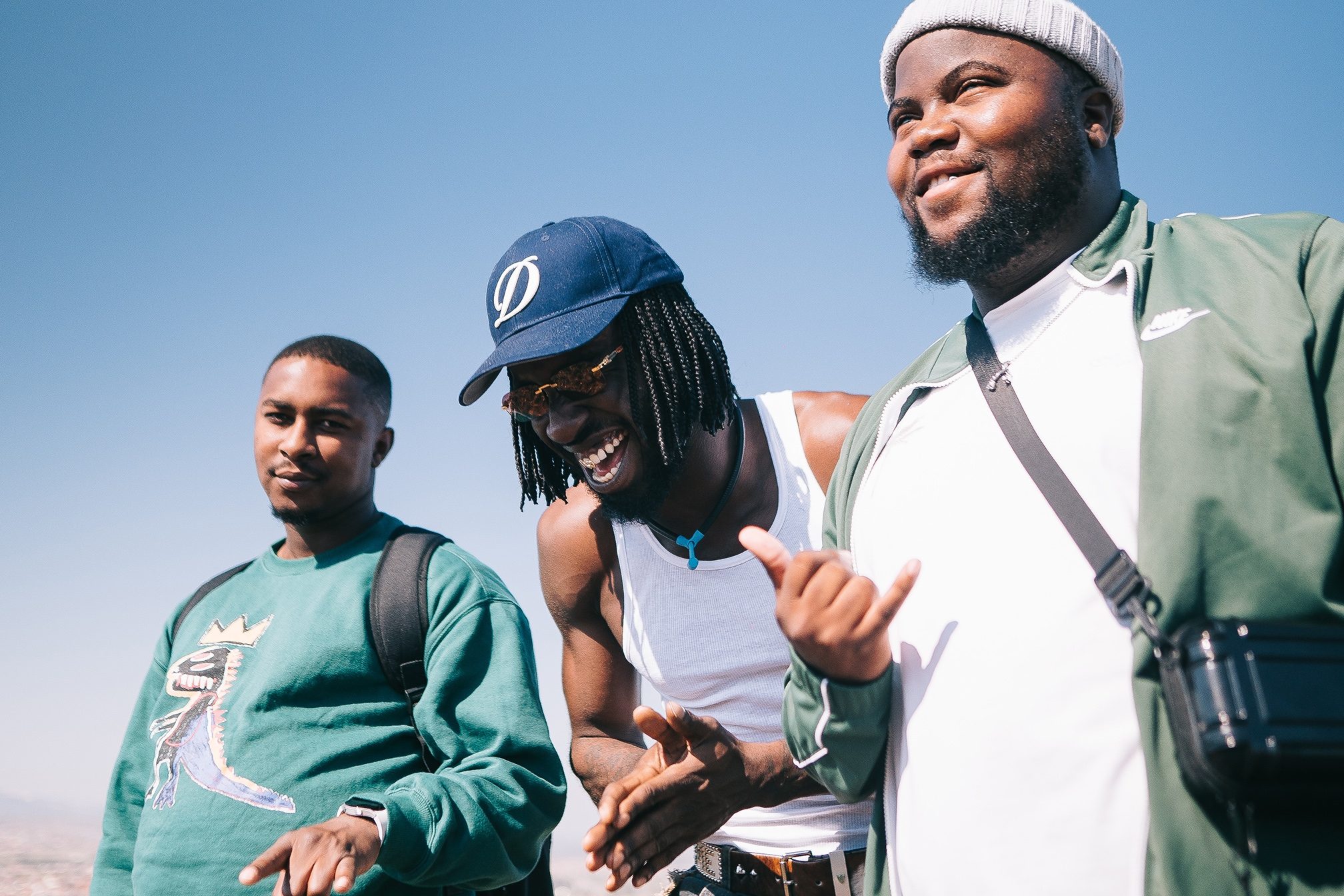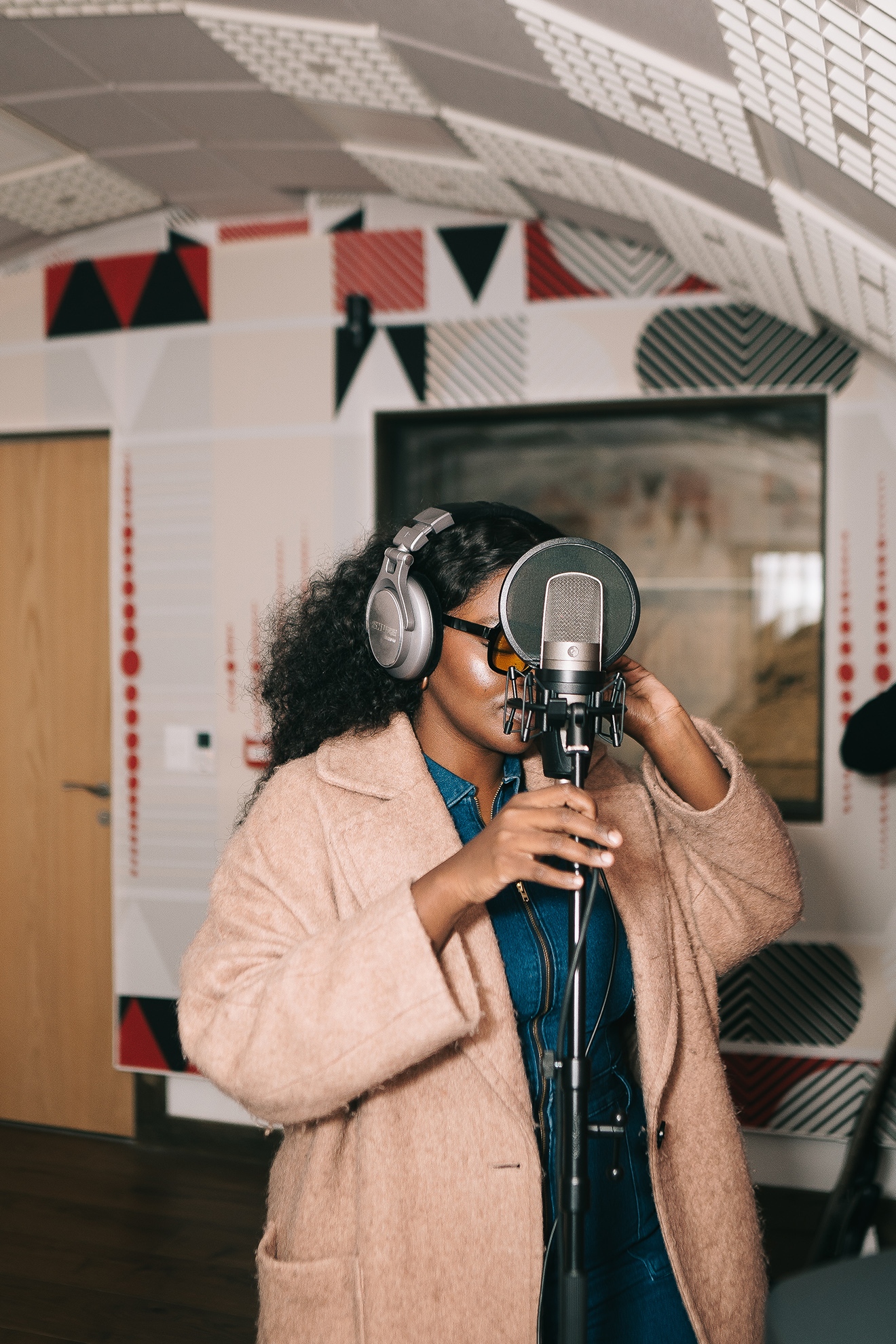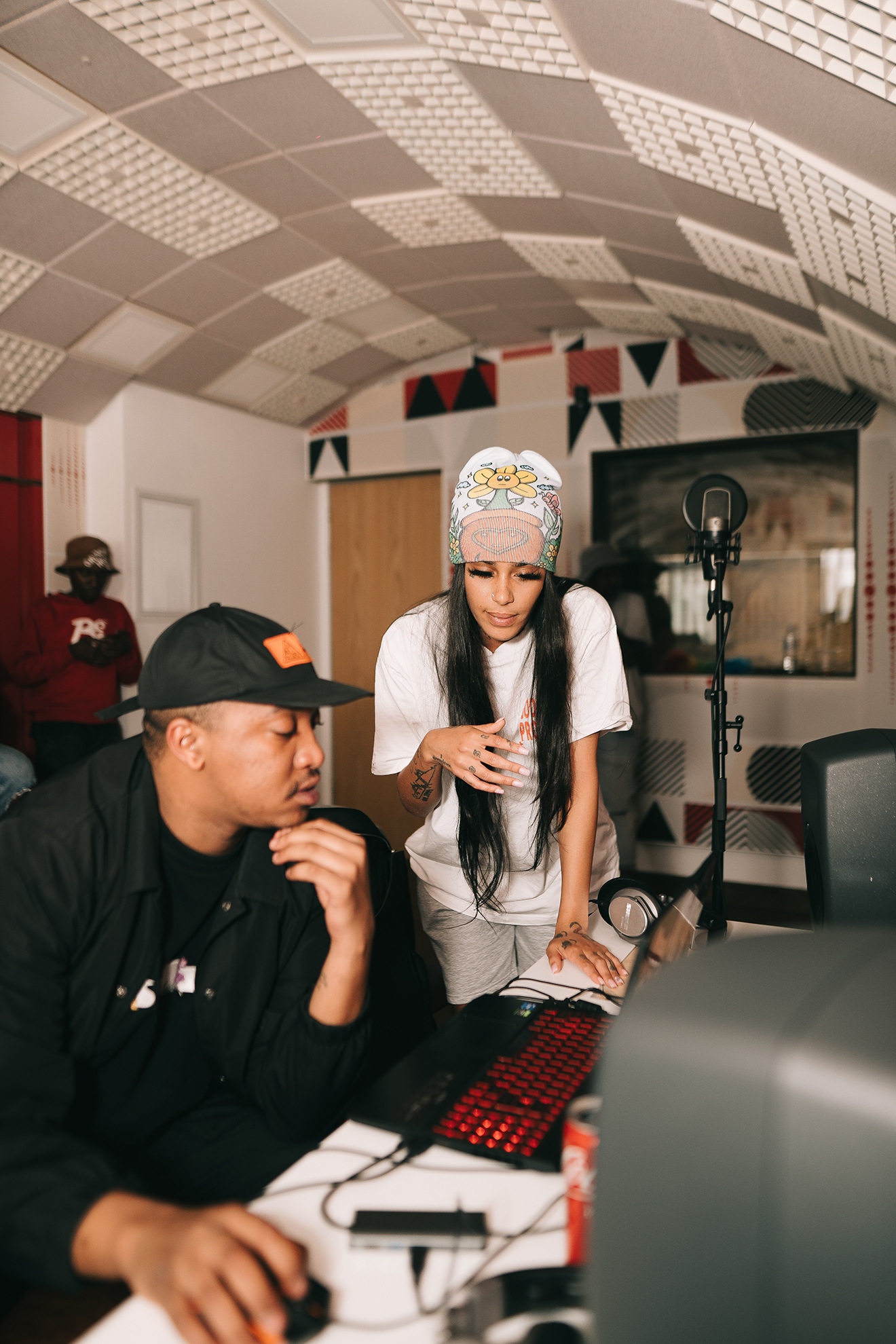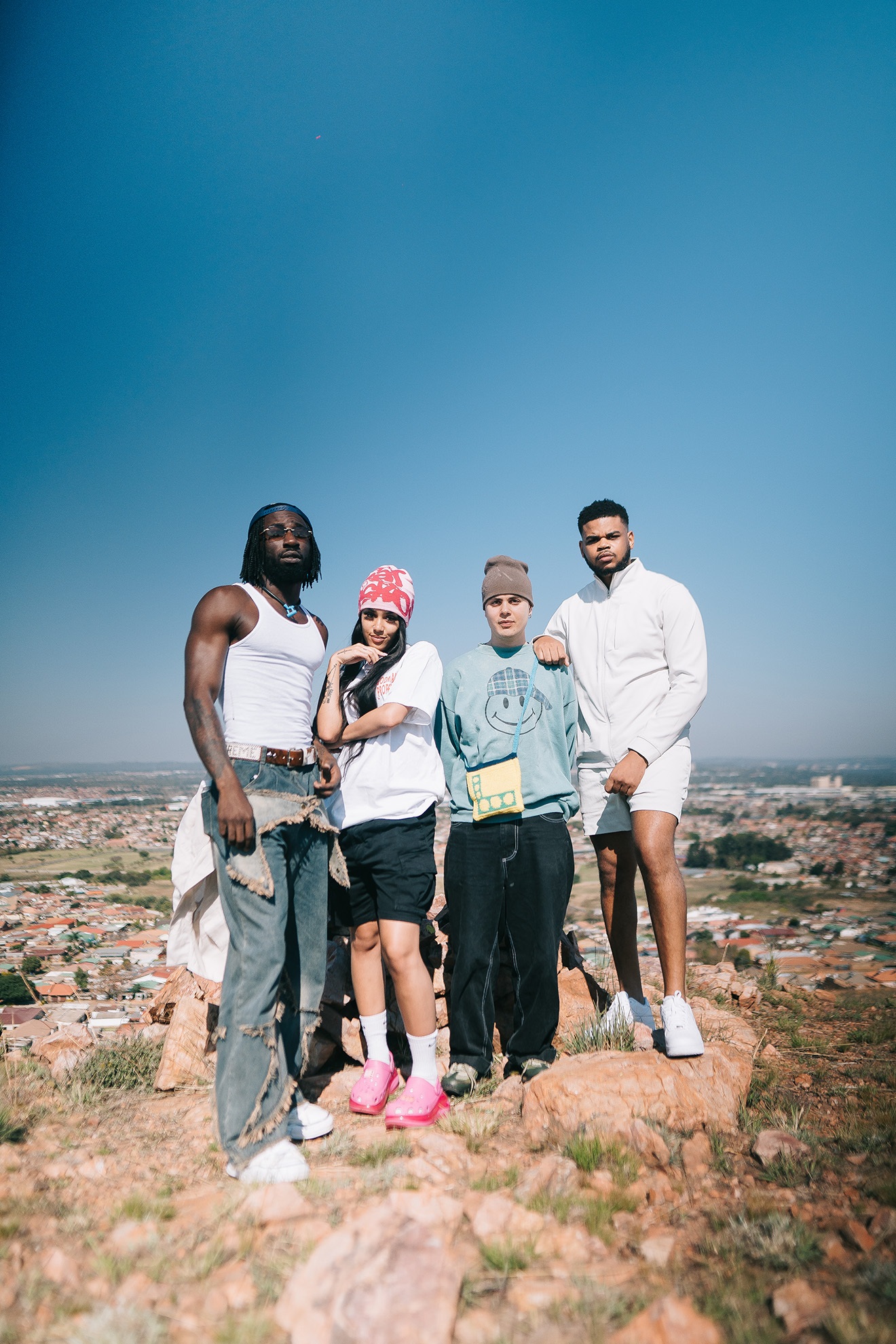 Features
Features
“Uplifting experience”: The making of ‘Mix It Up Vol. 2’, a cross-continental, cultural fusion
Nando's Mix It Up project pairs leading artists from the UK and South Africa to create unique musical experiments. We spoke to the artists about the creation of the EP
All ears are pointing towards South Africa right now. The nation’s ability to pioneer deep, spiritual strains of dance music is unparalleled, with amapiano the latest phenomenon to spread from townships to global takeover. Nando’s Mix It Up project is all about inspiring that worldwide connection, merging South African excellence with UK lyricism in the fields of UK rap, drill, R&B and hip hop to bring about unique cultural fusions.
For the 2023 edition, K-Trap, Kojey Radical, Lost Girl and Niko B took a trip to South Africa to learn about the cultural setting that birthed amapiano, then they channelled those learnings upon getting to work in Nando’s own Flame Studios with producers LuuDaDeejay, Dinho, Mathandos, MFR Souls, and vocalist Makhanj.
The result is the ‘Mix It Up Vol. 2’ EP, which is out now via Bridges For Music, a non-profit organisation which works to uplift talented young people from under-served communities to fulfil their creative potential. With creative input from ambassadors Major League DJz, it’s an ambitious, cross-continental offering that serves up four intriguing tracks.
K-Trap and Mathandos join forces on ‘Double Tap’ for a weighty cut that blends UK drill grit with the atmospheric pulse of amapiano; MFR Souls, Kojey Radical and Chrissy Day take things spiritual on the emotionally impactful ‘Sacrifice’; Lost Girl, LuuDaDeejay and Makhanj link up on the dynamic ‘Deh Deh’; and Niko B, Dinho and Makhanj close out on the unconventional ‘Vintage Golf’. We caught up with the involved artists to find out how the release came together.

Kojey Radical had travelled to South Africa several times before but found this trip and the cultural learnings especially inspiring. “I think this trip was particularly special because I got a chance to understand the intricacies and the details behind the culture and the heritage of amapiano,” he says. “I think it’s very easy to see something online and understand it to be a trend, but when you come to South Africa and you realise how important it is to the people of South Africa, it sounds 10 times better.”
Lost Girl, who was visiting for the first time but already a big fan of the amapiano sound, also feels the learnings enhanced her appreciation. “The trip around South Africa was so inspiring, for me to find out about where amapiano originated really allowed me to understand the importance more. It just made me want to do it justice!” she says.
Once they got into the studio, they felt connected to the amapiano sound and prepared to bring their own dimension to it. “After speaking to some local amapiano artists they reassured me that I should attack the beat how I would normally,” says Lost Girl. “But one thing I wanted to ensure was that all phrases that included Zulu or other languages were sung by someone who was from there. It’s only right!”
“It was good to get a first-hand experience of the culture, to just understand the meaning of amapiano and how passionate they are about the sound,” says K-Trap, whose own bars delve into his experiences of the UK streets with a hard-hitting and uncompromising style that mirrors the pain, aspiration and escapism of the township creators that fuelled the rise of amapiano.

The South African artists also felt enriched by the studio sessions. “I found it very amazing and exciting,” says Force Reloaded, one half of MFR Souls. “First and foremost the guys were friendly and respectful towards us. It didn’t take time for them to get used to us so they could have input and say whatever they wanted to say. We got the chance to try and understand each other and what our mission was.”
“I found the experience very uplifting,” says Dinho, who also found learnings for his career as well as his music. “Having been able to share a space with people from another country and be able to exchange our skills with one another taught me a lot about collaborative work and also that the music industry has no competition. It’s not a race. It's an opportunity to make your own life better in terms of discipline, patience, learning, self-discovery, sharing your talent with others and living your dreams of becoming financially independent at your own pace.”
Mathandos found the experience unusual and enjoyable. “The studio session was really dope. I enjoyed working with UK artists, it was quite different from what I’m used to but I really had fun,” he says. LuuDaDeeJay also found the UK spin brought to the sound exciting. “I got to experience how other artists outside of South Africa work and how they record and how they are really taking the amapiano sound out of South Africa,” he says, “and I’m really impressed about it — it’s really amapiano to the world.”

Kojey Radical found he didn’t need to adapt his voice to merge with amapiano, but the music did influence how he apporached the beat. “I think the hardest part was understanding when to pull back. The structure of amapiano requires it to have space. When you’re enjoying a record so much it’s instinctual to want to fill up every bit of blank canvas, but sometimes you just have to let it breathe,” he says.
Niko B also enjoyed the challenge of staying true to his style and while respecting the South African roots. “I wanted to bring myself to it, not change myself, if I did it wouldn’t sound authentic to me,” he says, landing upon his observations of the region to form his lyrical basis. “When we were driving round I’d constantly be staring out the window looking at everything and the main thing that stood out to me that I kept talking about was the vintage Volkswagen Golfs from the ‘90s. In England, they’re sort of a rarity and a collector’s item but in Johannesburg they were super common which I thought was pretty cool. When I got into the studio and Dinho started playing the beat, I just envisioned bits of the trip and the first thing I thought of were the Golfs and that’s where the opening lyric comes from.
“It was super fun making the song, everyone in the room was so talented, the upbeat production and drums and the pretty voice on the hook mixed with my kinda relaxed delivery of the verses all came together super nicely,” he adds.
South African vocalist Makhanj feels the same. “ The studio sessions were so much fun. The artists were so easy to get along with we just all bounced different ideas off of each other. You would swear we’d worked together before,” she says.
Ultimately, it was a creative and inspiring experience, and left the artists hungry for more cultural fusions in the future. “I think everyone wanted more collabs, more everything,” says Force Reloaded. “The whole two days were great. I enjoyed every moment. I still wanted more also.”
'Mix It Up Vol. 2' is available here
Patrick Hinton is Mixmag's Editor & Digital Director, follow him on Twitter



